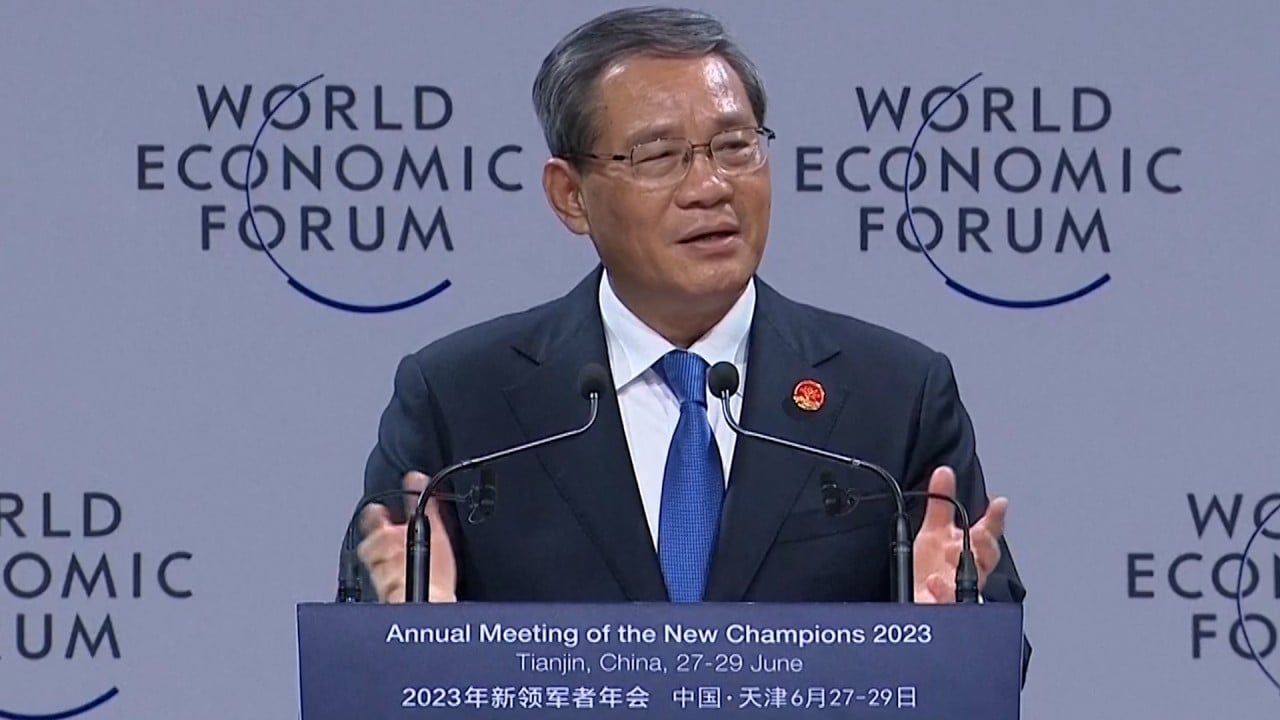
China’s Premier Li eyes ‘combination of punches’ during critical economic juncture
- Premier Li Qiang meets with experts at symposium as Beijing continues trying to shore up investor confidence and boost consumption
- Meeting comes as State Council has initiated a mechanism to ensure regular dialogues with private and foreign investors
While not revealing any specific policy details, Beijing has pledged to timely release a new batch of targeted and concerted measures to stabilise the national economy, with market concerns having jumped over the slowing of China’s post-Covid recovery and as investor sentiment worsens.
Premier Li Qiang made the comments at a symposium with experts on Thursday afternoon to assess the current economic condition. The State Council also initiated a mechanism to ensure regular dialogues with private and foreign investors.
“We should focus on implementing a ‘combination of punches’ in policymaking, centred around stable growth, employment and risk prevention,” Li was quoted by the official Xinhua news agency as saying.
He also called for the prompt implementation of targeted, comprehensive and concerted policy measures, as China is currently at a “critical juncture” of economic recovery and industrial upgrading, with a complex intertwining of structural issues and cyclical contradictions.
“It is important to establish and improve regular communication and exchange mechanisms between the government and various types of enterprises, including private and foreign-invested enterprises,” Li reportedly said.
The market has been expecting strong supportive policies to speed up sluggish economic growth that has been suppressed by strong internal and external headwinds, including weak confidence in the private sector, a curtailed property market, record-high youth unemployment and weak export demand, amid a weakening of the yuan against the US dollar.
Although no specific policy details were released during the symposium, the composition of invited participants, including several economists specialising in debt research, urbanisation and financial de-risking, suggested a preference for economic reforms.
The world’s second-largest economy is expecting its gross domestic product (GDP) growth to be around 5 per cent this year.
However, the disappointing industrial output and private sector investment in May has further worried the market, and some economists say that a faster economic growth rate in the second quarter will most likely be due to the much lower comparison base from a year earlier, rather than solid growth.
Economists also said the economic rebound will be modest this year, while it will be unrealistic to expect massive stimulus policies, as China is already struggling under the strain of massive debt.
A Goldman Sachs report published on Wednesday said their local clients were quite cautious about the long-term growth outlook for China, and that the market held low expectations for policy easing and structural reforms in the country this year.
Despite admitting that the overall policy stance would be more supportive in the short term, local businesses “viewed these additional easing measures as policy put to reduce growth headwinds, rather than to generate strong growth”, according to the investment bank.
“Structural reforms, such as any solutions to the property problem or local government financing challenges, would not be announced soon, as onshore policymakers still appeared to be exploring different policy options,” the report said.
On Wednesday, Minster of Commerce Wang Wentao met with 12 foreign pharmaceutical companies, including Pfizer, General Electric Healthcare and Bayer, to understand their China operations and listen to their suggestions on how to optimise the business environment for foreign firms.
Earlier this week, the top economic planner also met five private firms to solicit their views on corporate operations, challenges and also discuss how to help struggling private businesses.


